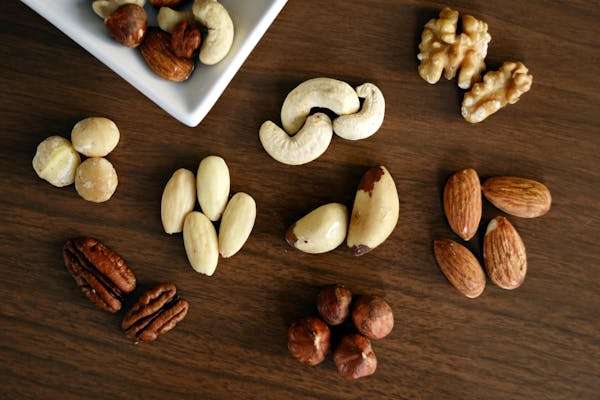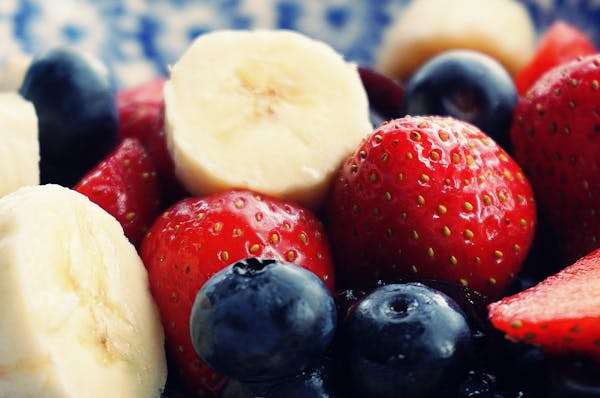In order to guarantee that both infants receive the vitamins and minerals they require for the best possible growth and development, proper nutrition for twin pregnancy. Carrying twins necessitates a larger calorie and essential nutrient consumption than a singleton pregnancy in order to support the additional demands on the mother’s body.
The mother’s and her children’s health can be greatly improved by being aware of these additional needs and knowing how to address them with a balanced diet. We’ll look at how to successfully meet these increased dietary needs and keep up a healthy twin pregnancy in this article.
The Role of Nutrition for Twin Pregnancy:
Nutrition plays a critical role in a twin pregnancy, as it directly impacts the health and development of both the mother and the babies. Unlike a singleton pregnancy, carrying twins significantly increases the body’s caloric and nutrient requirements.
Proper nutrition for twin pregnancies ensures that the mother can support the extra demands of her body while providing adequate nutrients for both fetuses. The mother’s body experiences increased stress and needs extra nutrients—such as energy, proteins, vitamins, and minerals—to support the growth and development of two infants during a twin pregnancy.

If a balanced diet is not used to accommodate this increased need, issues may arise. By providing for these dietary requirements, the risk of low birth weight, premature birth, and maternal deficiencies is decreased.
A well-planned diet that consists of a range of nutrient-dense foods is necessary to efficiently address these needs. This includes consuming enough calcium for bone development, iron to prevent anemia, omega-3 fatty acids for brain and eye health, and proteins for fetal growth.
With the assistance of a healthcare professional, regular monitoring and dietary modifications can help manage the particular issues of a
In summary, understanding and implementing the right nutrition for twin pregnancies is crucial for ensuring a healthy outcome for both the mother and her babies.
Meeting Increased Caloric Needs:
Meeting increased caloric needs is a fundamental aspect of managing a twin pregnancy, as the body requires more energy to support the growth and development of two babies. This extra caloric intake is crucial for maintaining the mother’s energy levels, supporting fetal development, and ensuring a healthy pregnancy outcome.
During a twin pregnancy, the caloric requirements can increase by approximately 600-800 calories per day compared to a singleton pregnancy. This significant increase is essential for providing the additional nutrients needed for two developing fetuses.

If these increased calorie requirements are not met, the mother runs the danger of experiencing low energy and possible vitamin shortages, which could have an impact on her health as well as the growth of the babies.
It’s critical to concentrate on nutrient-dense foods that include both calories and vital nutrients in order to efficiently fulfill these higher-calorie needs. Choose to eat a range of fruits and vegetables, whole grains, lean proteins, and healthy fats with your meals.
Including nutrient-dense, high-calorie snacks in between meals can also assist in meeting the recommended daily consumption of calories. It’s also critical to keep an eye on weight gain and see a doctor to modify calorie intake as necessary.
Key Nutrients to Focus On:
In a twin pregnancy, focusing on specific key nutrients is vital to support the health and development of both the mother and her babies. Proper nutrition for twin pregnancies involves ensuring adequate intake of several essential nutrients that are crucial for optimal fetal growth and maternal well-being.
- Protein: Protein is fundamental for the growth of fetal tissues and the formation of vital organs. During a twin pregnancy, protein needs to increase to support the development of two babies. Sources of high-quality protein include lean meats, poultry, fish, eggs, and legumes.
- Iron: Iron is essential for preventing anemia and ensuring adequate oxygen delivery to the babies. Increased blood volume in a twin pregnancy requires higher iron intake. Foods rich in iron include red meat, spinach, lentils, and fortified cereals.
- Calcium: Calcium supports the development of strong bones and teeth for both babies. A twin pregnancy increases calcium needs, which can be met through dairy products, fortified plant-based milk, and leafy greens.
- Omega-3 Fatty Acids: These are crucial for brain and eye development. Walnuts, flaxseeds, and fatty seafood like salmon are good sources of omega-3 fatty acids.
- Folate: Folate is vital for preventing neural tube defects and supporting overall fetal growth. Good sources include leafy greens, citrus fruits, and fortified grains.
By prioritizing these key nutrients, expectant mothers can meet the nutritional needs of a twin pregnancy and ensure a healthier outcome for both themselves and their babies.
Practical Meal and Snack Ideas:
To meet the increased caloric and nutritional needs of a twin pregnancy, having practical meal and snack ideas is essential. Effective nutrition for twin pregnancy involves incorporating nutrient-dense foods that support both the mother’s health and the babies’ development.
- Breakfast: Start the day with a hearty breakfast that includes a balance of protein, healthy fats, and whole grains. Consider options like a vegetable and cheese omelet with whole-grain toast, or Greek yogurt topped with fresh fruit and nuts.
- Lunch: For a nutrient-packed lunch, opt for meals that combine lean proteins with vegetables and whole grains. Examples include a quinoa salad with grilled chicken, mixed greens, and a variety of colorful vegetables, or a whole-grain wrap filled with turkey, avocado, and spinach.
- Dinner: A balanced dinner might include baked salmon with a side of roasted sweet potatoes and steamed broccoli, or a stir-fry with tofu, mixed vegetables, and brown rice.
- Snacks: Healthy snacks are crucial for maintaining energy levels and meeting increased caloric needs. Good options include a handful of almonds, apple slices with peanut butter, or cottage cheese with fresh berries.
Incorporating these practical meal and snack ideas ensures that the nutrition for twin pregnancies is well-balanced and provides the necessary energy and nutrients for a healthy pregnancy.
Hydration and Lifestyle Factors:
Maintaining proper hydration and addressing lifestyle factors are crucial aspects of ensuring a healthy twin pregnancy. Both elements play a significant role in optimizing nutrition for twin pregnancy and supporting overall well-being.

- Hydration: Adequate fluid intake is essential during a twin pregnancy to support increased blood volume, prevent dehydration, and aid in digestion. It is recommended that pregnant women try to consume 8 to 10 glasses of water a day.
Staying well-hydrated helps in nutrient transport and can reduce the risk of complications such as swelling and urinary tract infections. Drinking water, herbal teas, and consuming water-rich foods like fruits and vegetables can contribute to meeting hydration needs.
- Lifestyle Factors: Incorporating a balanced lifestyle is key to managing the increased demands of a twin pregnancy. Regular physical activity, as recommended by a healthcare provider, can improve energy levels and overall health. Additionally, managing stress through relaxation techniques, adequate sleep, and a supportive environment helps maintain nutritional balance and emotional well-being.
By focusing on hydration and lifestyle factors, expectant mothers can enhance their overall health and better meet the increased nutritional needs of a twin pregnancy, ensuring a healthier outcome for both themselves and their babies.
Consultation and Support:
Seeking consultation and support is a vital aspect of managing nutrition for twin pregnancies, ensuring that both the mother and her babies receive optimal care and guidance. Professional advice plays a significant role in addressing the unique nutritional needs and challenges of carrying twins.
- Professional Consultation: Regular consultations with a healthcare provider, such as an obstetrician or a registered dietitian, are essential for personalized nutrition guidance. These experts can tailor dietary recommendations based on individual health needs, monitor weight gain, and ensure that both mother and baby are receiving the necessary nutrients. They can also provide advice on managing specific pregnancy-related conditions, such as gestational diabetes or anemia.
- Nutritional Support: A registered dietitian specializing in pregnancy can offer detailed meal planning and dietary strategies to meet the increased caloric and nutrient needs of a twin pregnancy. They can help in creating balanced meal plans, suggest appropriate supplements, and provide tips for overcoming common dietary challenges.
- Emotional and Community Support: Joining support groups for expectant mothers of twins can offer emotional encouragement and practical advice from others in similar situations. These groups can provide additional resources and a sense of community, helping to manage the stresses associated with a twin pregnancy.
By leveraging professional consultation and support, expectant mothers can better navigate the complexities of nutrition for twin pregnancy, leading to a healthier and more comfortable pregnancy experience.
Conclusion:
In summary, managing a twin pregnancy requires careful attention to diet and lifestyle. Focusing on the right nutrition for twin pregnancies ensures that both the mother and her babies receive the essential nutrients needed for optimal growth and health.
By incorporating nutrient-dense foods, staying hydrated, and seeking professional guidance, expectant mothers can effectively meet their increased caloric and nutritional needs. Embracing these strategies supports a healthier pregnancy and promotes the well-being of both mother and babies. Click to learn more.
FAQs:
- What are the increased caloric needs during a twin pregnancy?
Expectant mothers carrying twins typically need an additional 600-800 calories per day compared to a singleton pregnancy.
- Which key nutrients are crucial in a twin pregnancy?
Protein, iron, calcium, omega-3 fatty acids, and folate are essential for supporting fetal growth and maternal health.
- How can I ensure adequate hydration during a twin pregnancy?
Aim for 8-10 glasses of water daily and include water-rich foods like fruits and vegetables in your diet.
- Why is professional consultation important in a twin pregnancy?
Healthcare providers and dietitians offer personalized guidance to meet the increased nutritional needs and manage any specific pregnancy-related conditions.
- What are some practical snack ideas for a twin pregnancy?
Nutrient-dense snacks include Greek yogurt with fruit, nuts, and seeds, or whole-grain crackers with cheese.
